Within the Decade of Science April 14, 2022 the Department of Foreign Languages of the Philological Faculty at the L.N. Gumilyov Eurasian National University held online seminar entitled «Academic challenges of optimizing the process of foreign language teaching».
The seminar was devoted to the problems of optimizing the educational process in teaching foreign languages in higher education, in particular, its theoretical and practical aspects, the development of effective online programs, recommendations for improving the areas of online teaching and teaching foreign languages were considered.
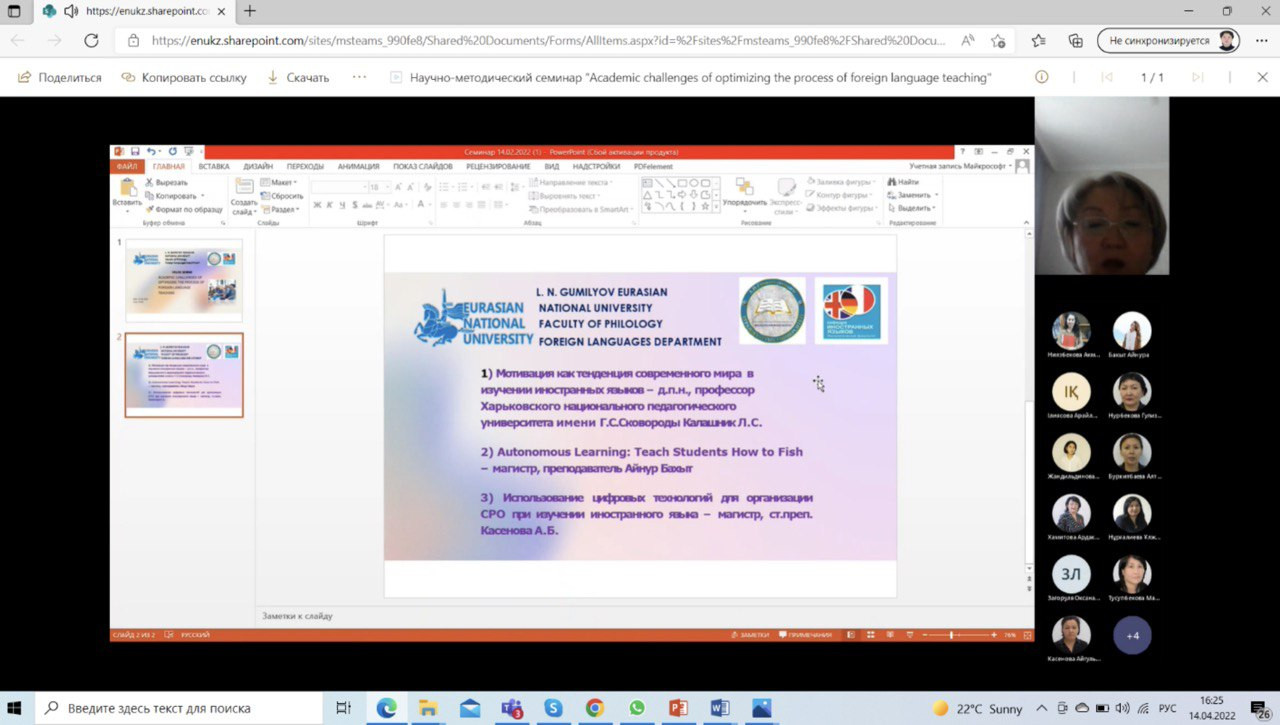
The following lecturers presented their topics of speeches:
1) Autonomous Learning: Teach Students How to Fish – master, lecturer of the department Ainur Bakhyt
2) Ispolsovanie ziphrovykh tekhnologii dlya organisazii SRO pri obuchenii inostrannogo yazyka [Использование цифровых технологий для организации СРО при изучении иностранного языка] – master, senior lecturer of the department Kassenova A.B.
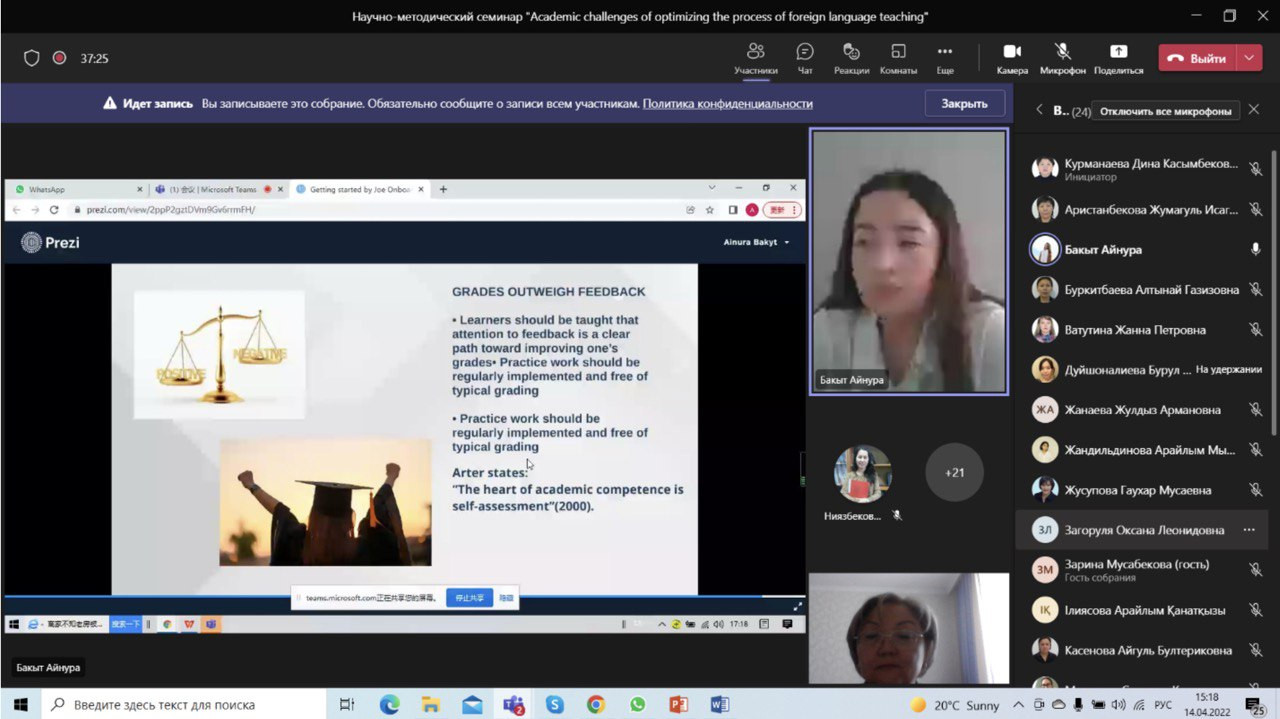
Master, lecturer of the department Ainur Bakhyt in her presentation entitled «Autonomous Learning: Teach Students How to Fish» noticed that while many instructors do not have flexibility with institution-assigned syllabus and rubrics, they may achieve usefulness by sharing these with their learners. Familiarizing learners with rubrics, both assignment-specific and those used for general grading, can help build learners’ foundational knowledge and understanding of course expectations. By clarifying expectations and providing opportunities for rubric-based practice, instructors express specific criteria for great (meaningful) work and give learners more control over their learning, grades, feedback, and future success. Assignment introductions that include a genuine copy of the instructor’s rubric help to explain the nature of the work, specific learning targets, expectations, and responsibilities. This approach contrasts with more standard assignment introductions that tend to provide a summary of the work. Rubric-based introductions allow for an outline of main points or goals but also include learning targets and guidelines that help support learner autonomy, understanding, and success. According to speaker, teachers can take different approaches to instill habits that lead to autonomous learning. When learners understand that attention to feedback can improve one’s grade, students will learn to take much more responsibility for their assignments.
Associate professor of the department Kurmanayeva D.K asked questions about the problems that may arise when conducting feedback (Feedback) with students during autonomous learning, where a detailed answer was provided. Assistant professor of the department Mukhtarkhanova A.M. thanked the speaker for an interesting presentation and she expressed the confidence that the material of this presentation is quite suitable for publication in high-ranking journals, adding only the results of the experiment.
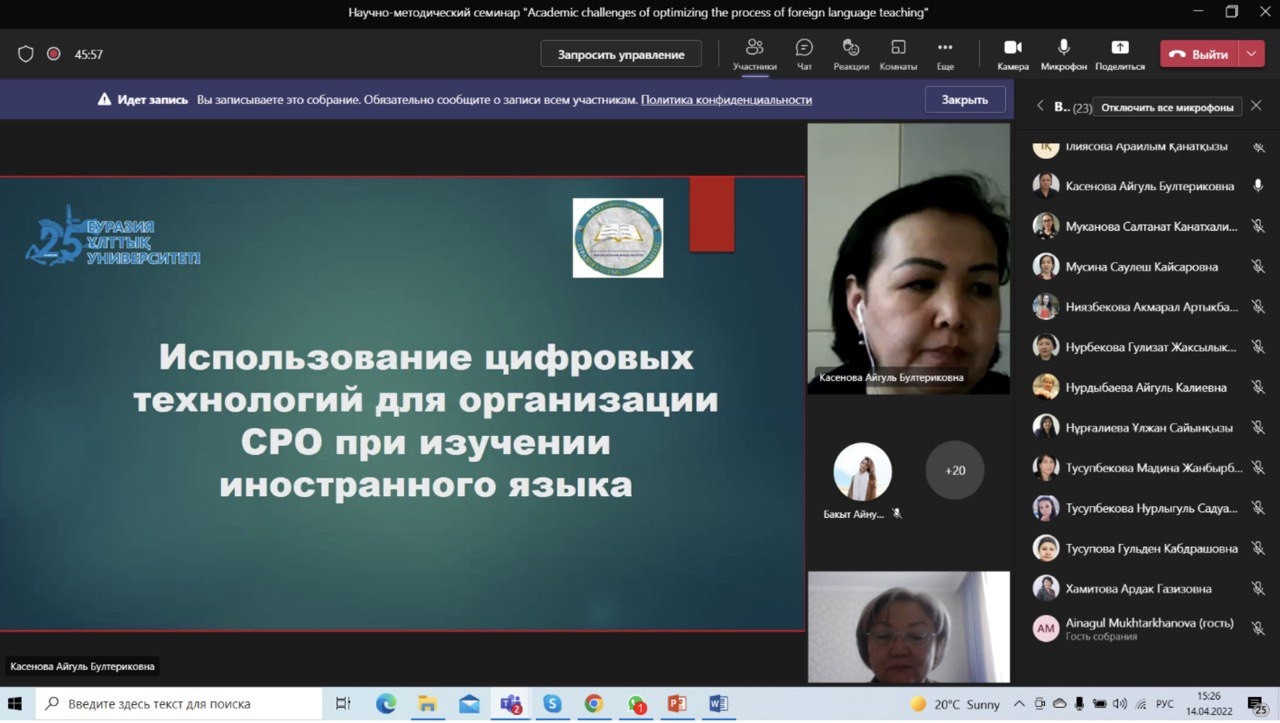
The second speaker - master, senior lecturer of the department Kassenova A.B. with the topic of presentation: "The use of digital technologies for the organization of SRO in the study of a foreign language" notes that teaching foreign languages in modern higher education is aimed at mastering a foreign language as a means of communication in a professional environment. This means that the study of a foreign language should become an integrated part of the formation and development of research competence.
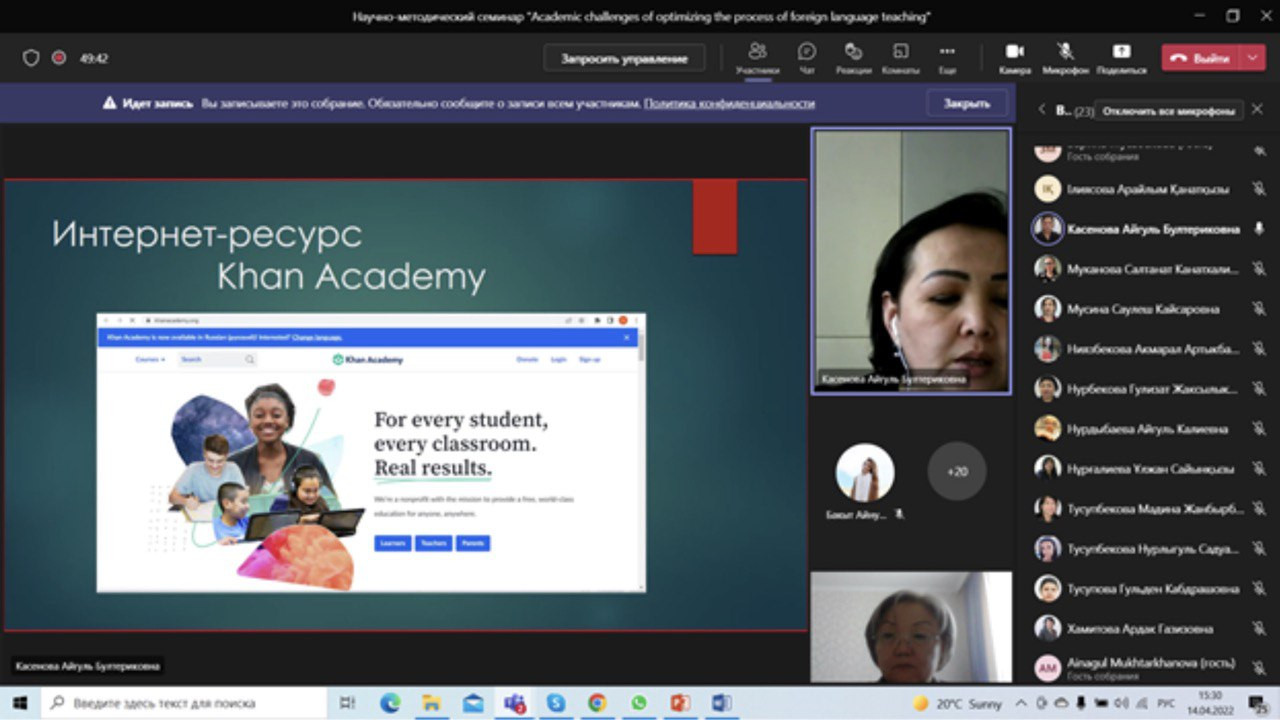
The speaker listed the most popular digital technologies and web resources that are used in her learning process: Zunal (http://zunal.com/), http://LearningApps.org, Bubbl.us, Quizlet, Native English, BBC Learning English, Learn English, British Council, BBC Language at Work. The speaker expresses confidence that the use of digital technologies increases motivation and promotes a deliberate approach to self-control. The teacher is given the opportunity of an individual approach to assessing the level of knowledge and eliminating the identified gaps. Innovative teaching of a foreign language involves the widespread introduction of new teaching methods. Modern computer technologies help to diversify the independent work of students, contribute to their more effective control by the teacher.
Senior lecturers of the department Tussupbekova N.S. and Mussina S.K. asked questions about applications that can be applied in the master's program and about the features of the Bubbl.us program, whete detailed answers were provided with a demonstration of these applications and an explanation of how to work on them.
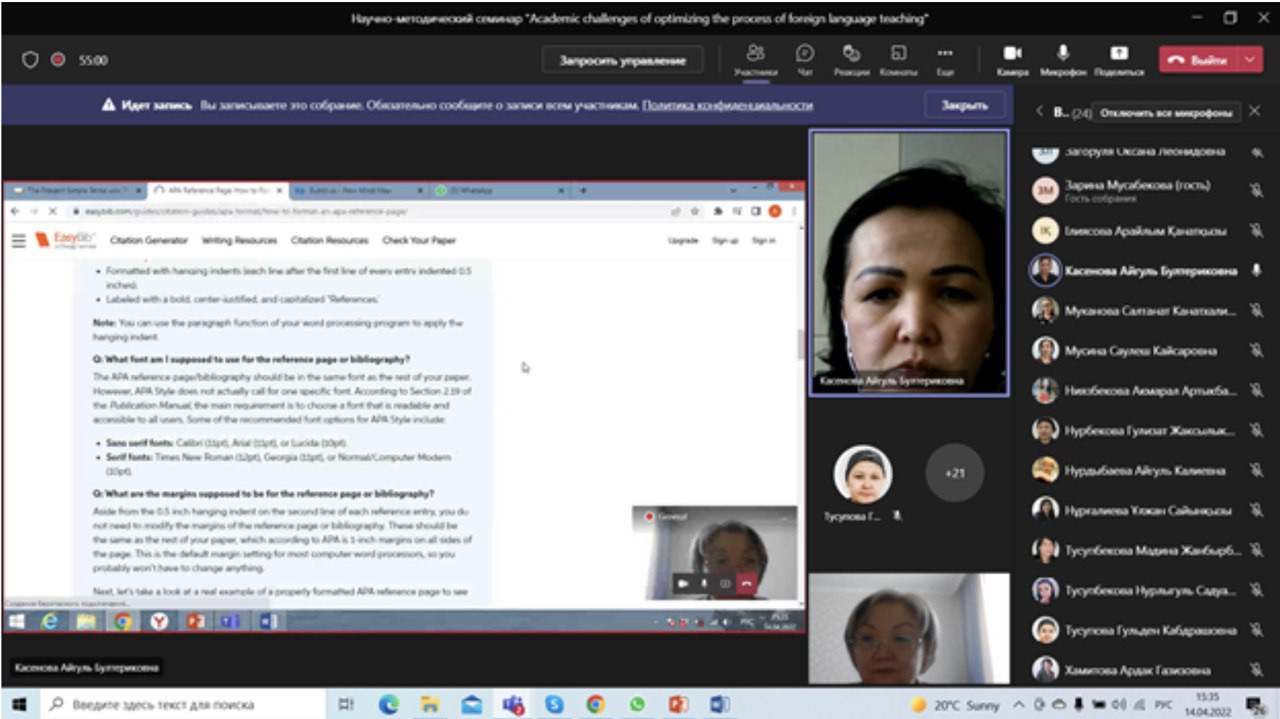
Summing up the results of the seminar, the participants expressed a unique positive opinion about the relevance of the issues considered, their novelty and the value of the information received for further practice.

.jpg)
